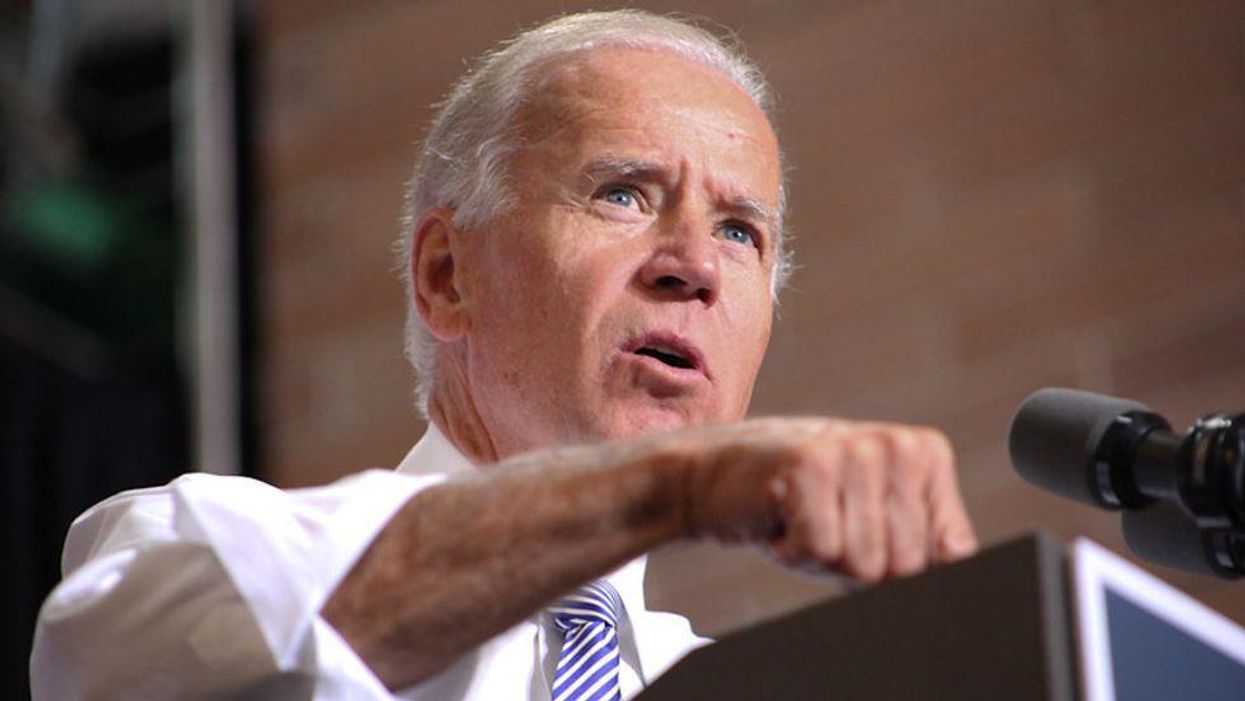Biden 'Framework' Details Historic Investments In Climate, Child Care And Much More

President Joe Biden
President Joe Biden announced a new framework for his Build Back Better jobs plan on Thursday. Though the $1.75 trillion package is not as large as he originally envisioned, it would still include historic investments to address climate change and caregiving infrastructure.
The largest item in the package would be $555 billion for clean energy and fighting climate change. The administration called it "the largest effort to combat climate change in American history" and "the largest single investment in our clean energy economy in history, across buildings, transportation, industry, electricity, agriculture, and climate-smart practices across lands and waters."
This comes after an August report from the Intergovernmental Panel on Climate Change, the United Nations group dedicated to climate change science, which delivered a "code red" warning, stating that scientists have reached the conclusion that humans are driving global warming and that without immediate action, it will have "profound consequences for the world's social, economic and natural systems.
"With the $555 billion investment, the White House says the United States would be on track for its goal of a 50 percent --52 percent reduction in greenhouse gas emissions by 2030.
The funds would be an addition to the investment in clean energy grid and electric vehicle infrastructure contained in the bipartisan $550 billion Infrastructure Investment and Jobs Act, which previously passed the Senate and is awaiting action in the House. Climate advocates say that too will provide "really great first steps" and some "really great second steps" on the issue.
The revised $1.75 trillion Build Back Better plan also includes a $400 billion investment in affordable child care and two years of free pre-K education. According to the White House, this will "save most American families more than half of their spending on child care" and will "increase the likelihood that parents, especially mothers, are employed or enrolled in education and training beyond high school."
It would make permanent the expanded child tax credit for more than 35 million families. That credit of up to $300 a month per kid — enacted for 2021 as part of Biden's American Rescue Plan — has already lifted an estimated 3 million children out of poverty.
Other items included in the framework include $150 billion to increase affordable housing, $150 billion for home care, $130 billion to cover millions more uninsured Americans under the Affordable Care Act, and $35 billion to add hearing benefits to Medicare. It also includes immigration reform provisions, assuming they survive the Senate's arcane budget reconciliation rules.
Democrats say the plan will be fully paid for by establishing 15 percent minimum taxes for large corporations, a tax increase on the wealthiest 0.02 percent of Americans, a crackdown on rich tax evaders and loopholes used by millionaires to avoid taxes, and a few other offsets. It would not increase taxes on anyone earning under $400,000.
With Republicans in both chambers firmly opposed to Biden's popular original $3.5 trillion package and a handful of conservative Democrats unwilling to accept that price tag, the White House and the rest of the congressional Democrats were forced to scale back some priorities. Proposals to invest billions more in free community college and paid family and medical leave — and to reduce the costs of prescription drugs through price negotiations — will not be part of this package.
Despite claims that the plan will "add trillions of dollars to the debt," the new version will likely reduce the annual budget deficit. The White House estimates that the offsets could bring in nearly $2 trillion, potentially bringing down the deficit by $145 billion to $245 billion.
Because the package would be considered under budget reconciliation rules, which are not subject to a filibuster, Democrats can enact this framework without any Republican support.
Correction: A previous version of this article stated that the new climate investments add to the $550 billion for clean energy and electric vehicles in the separate infrastructure package. It has been corrected to note that the $550 billion is the full total of the entire infrastructure package, not the clean energy and electric vehicle funding.
Published with permission of The American Independent Foundation.
- Pelosi Expects Votes On Both Biden Spending Bills This Week ... ›
- What The Media Gets Wrong About The Centerpiece Of Biden's Agenda - National Memo ›
- White House unveils details of ambitious Build Back Better framework ›
- Biden and Democrats' Build Back Better plan in summary: Paid ... ›
- Joe Biden Unveils Scaled Down Build Back Better Framework ... ›
- Here's how Biden's Build Back Better framework would tax the rich ›
- President Biden Announces the Build Back Better Framework | The ... ›








